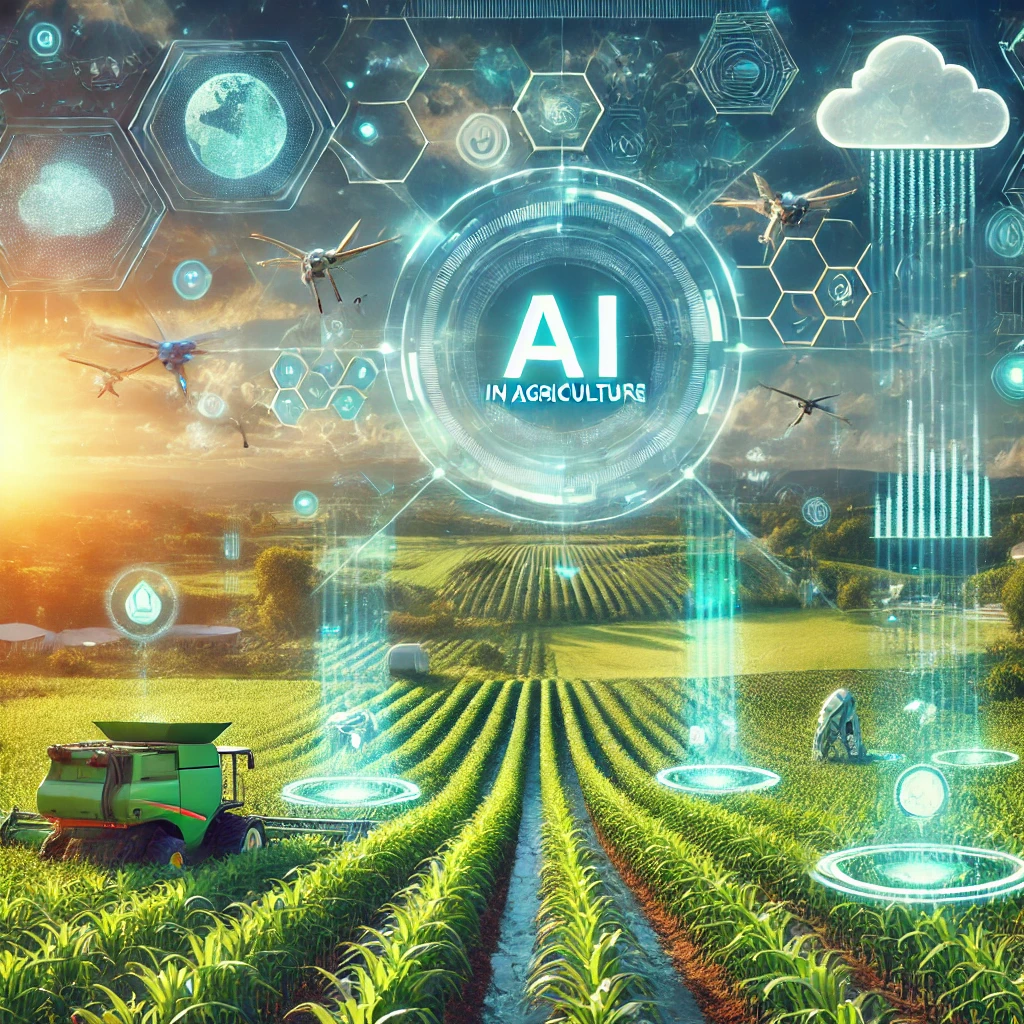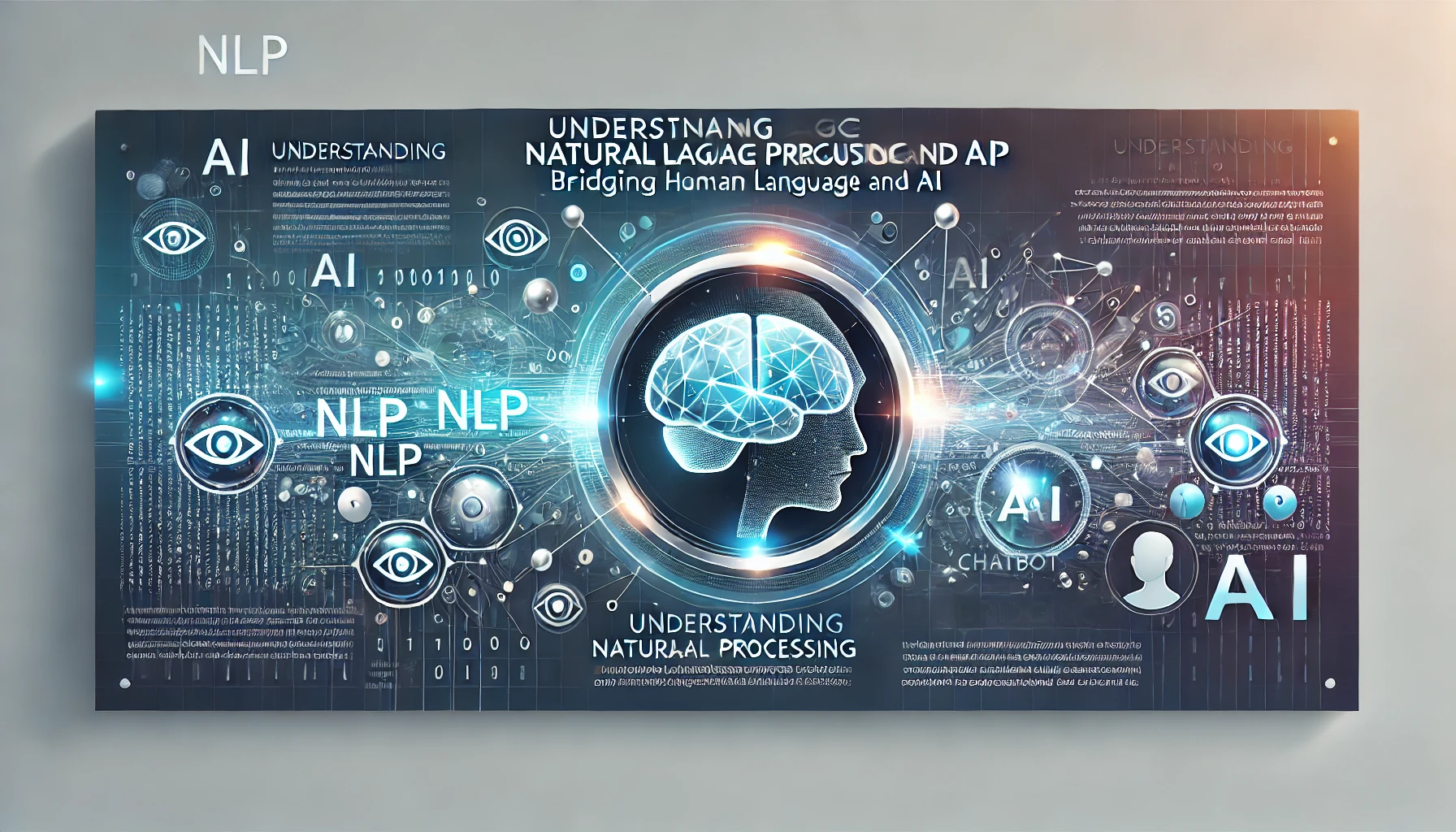AI in agriculture is revolutionizing the farming industry, enabling smarter, more sustainable practices that enhance productivity and conserve resources. From precision farming to automated machinery, AI-powered innovations are helping farmers address critical challenges like climate change, resource scarcity, and rising global demand for food.
AI in Agriculture: A Modern Farming Revolution
AI in agriculture refers to the use of advanced technologies such as machine learning, computer vision, and robotics to enhance efficiency in farming operations. By integrating AI, farmers can make data-driven decisions that maximize yield, minimize waste, and improve sustainability.
Transformative Impacts of AI in Agriculture
1. Precision Farming with AI
AI-powered tools enable precision agriculture, which focuses on using data to optimize farming practices at a micro-level. This includes:
- Soil Monitoring: AI-driven sensors analyze soil quality, moisture levels, and nutrient availability in real time.
- Variable Rate Technology (VRT): Adjusting water, fertilizers, and pesticides based on crop needs and environmental factors.
- Weather Predictions: AI systems provide accurate weather forecasts to guide planting and harvesting schedules.
2. Crop Monitoring and Disease Detection
AI is transforming crop management by enabling:
- Automated Pest Control: Drones equipped with AI-powered cameras detect pests and diseases early, ensuring timely intervention.
- Computer Vision Technology: AI analyzes images of crops to identify issues like nutrient deficiencies or fungal infections.
- Yield Prediction Models: Machine learning algorithms predict crop yield, helping farmers plan more effectively.
3. Autonomous Equipment and Robotics
AI-powered machinery is automating labor-intensive tasks, such as planting, harvesting, and irrigation. For example:
- Robotic Harvesters: Machines pick fruits and vegetables with speed and precision, reducing reliance on manual labor.
- Driverless Tractors: Autonomous tractors navigate fields using GPS and AI algorithms, ensuring consistent and efficient operations.
4. Smart Irrigation Systems
AI-driven irrigation systems help conserve water by:
- Using real-time data from soil and weather sensors.
- Automatically adjusting water delivery to avoid over- or under-irrigation.
This leads to significant water savings and healthier crops.
5. Supply Chain Optimization
AI also plays a pivotal role beyond the farm by:
- Predicting Market Trends: Helping farmers align production with consumer demand.
- Minimizing Post-Harvest Losses: AI systems identify the best storage and transportation conditions for perishable goods.
Real-World Applications of AI in Agriculture
Blue River Technology
Blue River Technology, acquired by John Deere, developed an AI-powered machine called “See & Spray,” which uses computer vision to detect and precisely apply herbicides to weeds. This reduces chemical usage and saves costs.
IBM Watson Decision Platform for Agriculture
IBM’s AI platform provides farmers with actionable insights by analyzing weather data, soil reports, and crop conditions. It enhances decision-making across the entire farming lifecycle.
Drones in Smart Farming
AI-integrated drones monitor large agricultural fields, creating detailed maps that guide precision farming efforts.
Benefits of AI in Agriculture
- Enhanced Efficiency: Automating repetitive tasks allows farmers to focus on strategic decisions.
- Sustainability: AI minimizes resource wastage, contributing to environmentally friendly farming.
- Cost Reduction: Optimized use of water, pesticides, and labor reduces operational costs.
- Scalability: AI makes it easier for small and large-scale farmers to expand operations effectively.
Challenges and Concerns with AI in Agriculture
While AI offers remarkable benefits, there are challenges:
- High Initial Costs: Investing in AI technology can be expensive for small-scale farmers.
- Data Privacy: Concerns over data ownership and misuse of sensitive agricultural data.
- Skill Requirements: Farmers need training to use AI systems effectively.
- Reliance on Technology: Over-dependence on AI could pose risks during system failures.
Future Prospects of AI in Agriculture
The future of AI in agriculture looks promising, with ongoing advancements set to redefine farming:
- AI-Powered Vertical Farms: Optimizing urban farming in controlled environments.
- Blockchain Integration: Ensuring transparency and traceability in agricultural supply chains.
- Climate-Resilient Farming: AI tools will help mitigate the impacts of climate change by predicting and adapting to extreme conditions.
AI’s Broader Impact on the Agricultural Industry
AI in agriculture is more than just technology; it’s a catalyst for global change:
- Food Security: Ensures a steady supply of nutritious food for a growing population.
- Economic Growth: Increases productivity and creates new job opportunities in agri-tech.
- Global Sustainability: Supports efforts to combat climate change by promoting sustainable practices.
FAQs
AI enables precise application of resources, such as water and fertilizers, using data-driven insights, resulting in higher efficiency and productivity.
AI systems detect pests and diseases early using image analysis and drones, allowing timely interventions and reducing crop losses.
Challenges include high costs, lack of technical expertise, and concerns over data privacy and system dependency.
Yes, with affordable and scalable solutions like mobile apps, even small-scale farmers can leverage AI for better yields and cost savings.
AI’s future in agriculture includes innovations like vertical farming, climate-adaptive farming tools, and integration with blockchain for supply chain transparency.
AI optimizes resource usage, reduces chemical application, and promotes eco-friendly practices, making agriculture more sustainable.
Conclusion
AI is a transformative force in the agricultural industry, addressing challenges and unlocking new possibilities. From precision farming to supply chain optimization, AI enables smarter, more sustainable farming practices. As technology continues to evolve, AI will play a vital role in feeding the world, conserving resources, and ensuring a brighter future for agriculture.



